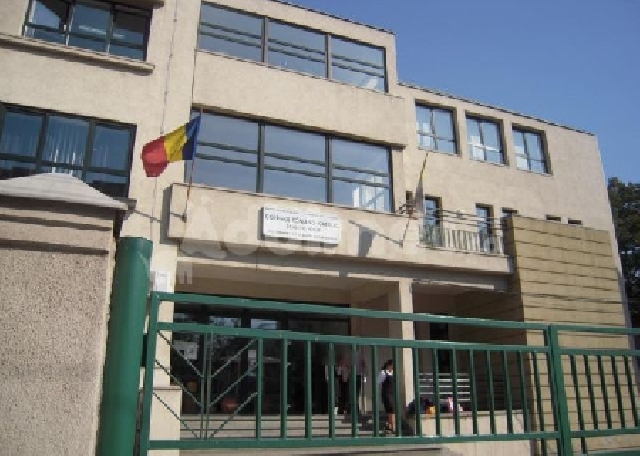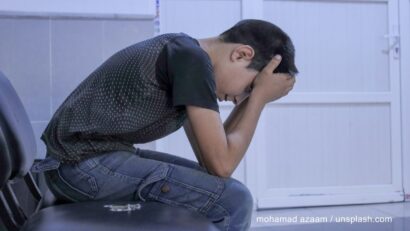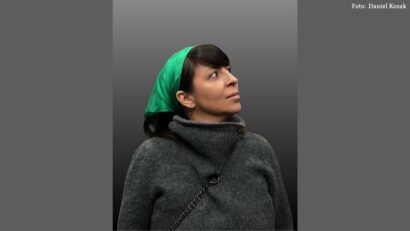Confessional Schools in Romania
Romania has a number of state schools that are run by certain churches, the so called confessional schools, which, while teaching state curricula, have something different too

România Internațional, 28.08.2013, 13:20
Romania has a number of state schools that are run by certain churches, the so called confessional schools, which, while teaching state curricula, have something different too. To find out what is different there, and what makes them attractive to the students going there, we went to one of them. It is the St. Joseph Roman Catholic College of Bucharest, where we talked to one of the students, Razvan. He is a 9th grade student, specializing in math and IT. He’s been going there since first grade. Obviously, his parents picked the school for him at first, but when he went to high school, he had a choice, and opted to stay. Here he is telling us about it:
“I like the fact that we study hard. We don’t need private tutoring, because teachers do their jobs really well. There are no drugs, there is no drinking, as opposed to other high schools, where you can even see physical fights. It is a small high school, so teachers have time for each and every one of us.”
Since his specialization is math and IT, Razvan has only one class of religion per week. However, Francesca, a 12th grader, specializes in theology, so she has more religion oriented classes. She is Christian Orthodox, and she likes being in a Catholic high school, where they encourage a balance between learning and spiritual peace.
“To me and my parents, order in life was important, and as opposed to the people specializing in math, I have four of five classes weekly which include religion: the history of religion, religion, which are specialty subjects, but are equivalent with history and Romanian classes, they have a lot in common.”
Sister Rodica Miron, director of the St. Joseph college, as the high school is known in Romania, believes that the main aim of this confessional school has a job additional to intellectual training, that of shaping kids in line with the ethical and spiritual lines of the Gospel. She told us about it:
“Typical of our high school is how we approach all subjects. The entire atmosphere of the school helps kids develop spiritually, culturally, shape themselves as people. There is even a spiritual headmaster, there are a few people working here exactly for that, sisters and priests, who are there for the children when they have questions about anything.”
This spiritual atmosphere, however, is what puts some parents and children off. Here is Sister Rodica Miron once again:
“Some get here by chance, and then leave. We don’t proselytize. We don’t ask kids what they are, Catholic, Orthodox or Neo-Protestant. It is true that we only take Christian children, because we have a Christian approach. We work the same way with all of them. In the high school’s entire history, which is over 20 years long, I think we’ve had only one student who became a priest. There are a few nuns, but the majority choose lay careers.”
In the town of Oradea there is another confessional high school, the Iuliu Maniu Greek Catholic High School. 60% of the students are Orthodox, and around 30% are Roman Catholic and Greek Catholic, with the rest having different Christian affiliations. According to headmaster Aurelian Cristea, the purpose of the high school is to educate children in a Christian spirit, not along the lines of dogma:
“In our general knowledge cycles we have one religion class a week. In specialty theology cycles, we have three or four specialty classes a week. Once a week, on Fridays between 8 and 9, we have a mass for all students. In addition, we have a lot of extra-curricular and out of school optional activities for children, helped by volunteers who are priests or teachers of religion, which, with their complexity, attract children, and shape their personality according to moral principles, love, altruism, compassion for the needy, reacting to problems in life with prayer and trust for those around us.”
Father Vasile Gavrila set up the Three Holy Hierarchs High School of Bucharest in order to offer Orthodox children and parents an alternative to regular education, which is closer to their faith. They are trying to do this following the curriculum offered by the Ministry of Education, especially by having teachers act differently. As opposed to other confessional schools, the Three Holy Hierarchs High School is a private school, accredited by the ministry and blessed by the head of the Romanian Orthodox Church, Patriarch Daniel. This grants them a certain independence. Let us listen to Father Gavrila talking about it:
“Everything that is studied is studied from the perspective of revealed heavenly truth. There is no antithesis between science and culture, we try to blend culture with revealed truth. Being a private school, we can register only the children we want. There is a selection by mutual agreement between the school and the parents. Our priority, besides education, is to shape children in the Christian Orthodox spirit.”
Iulian Capsali has two children who go to high school. As a practicing Orthodox Christian, he wants his children to grow up in the faith. He is not happy with public schools:
“If you behave in an Orthodox fashion at home and you have the same thing at school, then certain things flourish in a child’s soul. He grows in the spirit of the church. It is even better if this spirit can be found in school. My other kids come from school with things that trouble them. Imagine, they have colleagues who take drugs and sell them in school. I don’t think there are high schools in Bucharest where this phenomenon does not exist.”






























